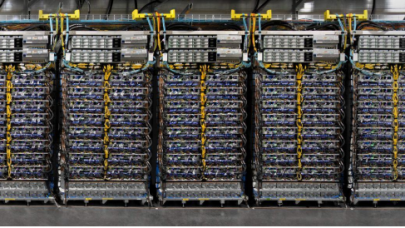
Google AI Supercomputer Shows the Potential of Optical Interconnects
April 10, 2023
There are limits on the speed of how fast copper wires can move data between computers, and a transition to light speed will ultimately drive AI and high-performance computing forward. Every major chipmaker is in agreement that optical interconnects will be needed to reach zettascale computing in an energy-efficient way. That opinion was... Read more…

Ayar Labs to Demo ‘Commercial-Grade’ 4Tbps Optical I/O Solution
March 1, 2023
Ayar Labs, founded in 2015, is pursuing optics as a means of driving higher interconnect speeds and efficiencies in computing. Now, the company is announcing th Read more…

Déjà Vu All Over Again
November 16, 2009
Never short on opinions, especially when it comes to high performance computing, Convey Computer Co-Founder Steve Wallach talked to HPCwire about the future of HPC and how lessons from the past can point the way for the future. Read more…

Intel Developing Optical Chip-to-Chip Interconnects
February 12, 2009
At the International Solid State Circuits Conference this week, Intel outlined its progress on CMOS photonics. Read more…

HP Calls for On-Chip Optics
January 28, 2009
An HP researcher says multicore processors will need to adopt optical interconnects over the next decade to deliver the bandwidth and programmability the computer industry needs. Read more…

- Click Here for More Headlines

Whitepaper
Transforming Industrial and Automotive Manufacturing
In this era, expansion in digital infrastructure capacity is inevitable. Parallel to this, climate change consciousness is also rising, making sustainability a mandatory part of the organization’s functioning. As computing workloads such as AI and HPC continue to surge, so does the energy consumption, posing environmental woes. IT departments within organizations have a crucial role in combating this challenge. They can significantly drive sustainable practices by influencing newer technologies and process adoption that aid in mitigating the effects of climate change.
While buying more sustainable IT solutions is an option, partnering with IT solutions providers, such and Lenovo and Intel, who are committed to sustainability and aiding customers in executing sustainability strategies is likely to be more impactful.
Learn how Lenovo and Intel, through their partnership, are strongly positioned to address this need with their innovations driving energy efficiency and environmental stewardship.
Download Now
Sponsored by Lenovo
Whitepaper
How Direct Liquid Cooling Improves Data Center Energy Efficiency
Data centers are experiencing increasing power consumption, space constraints and cooling demands due to the unprecedented computing power required by today’s chips and servers. HVAC cooling systems consume approximately 40% of a data center’s electricity. These systems traditionally use air conditioning, air handling and fans to cool the data center facility and IT equipment, ultimately resulting in high energy consumption and high carbon emissions. Data centers are moving to direct liquid cooled (DLC) systems to improve cooling efficiency thus lowering their PUE, operating expenses (OPEX) and carbon footprint.
This paper describes how CoolIT Systems (CoolIT) meets the need for improved energy efficiency in data centers and includes case studies that show how CoolIT’s DLC solutions improve energy efficiency, increase rack density, lower OPEX, and enable sustainability programs. CoolIT is the global market and innovation leader in scalable DLC solutions for the world’s most demanding computing environments. CoolIT’s end-to-end solutions meet the rising demand in cooling and the rising demand for energy efficiency.
Download Now
Sponsored by CoolIT
Advanced Scale Career Development & Workforce Enhancement Center
Featured Advanced Scale Jobs:
HPCwire Resource Library
HPCwire Product Showcase
© 2024 HPCwire. All Rights Reserved. A Tabor Communications Publication
HPCwire is a registered trademark of Tabor Communications, Inc. Use of this site is governed by our Terms of Use and Privacy Policy.
Reproduction in whole or in part in any form or medium without express written permission of Tabor Communications, Inc. is prohibited.
























